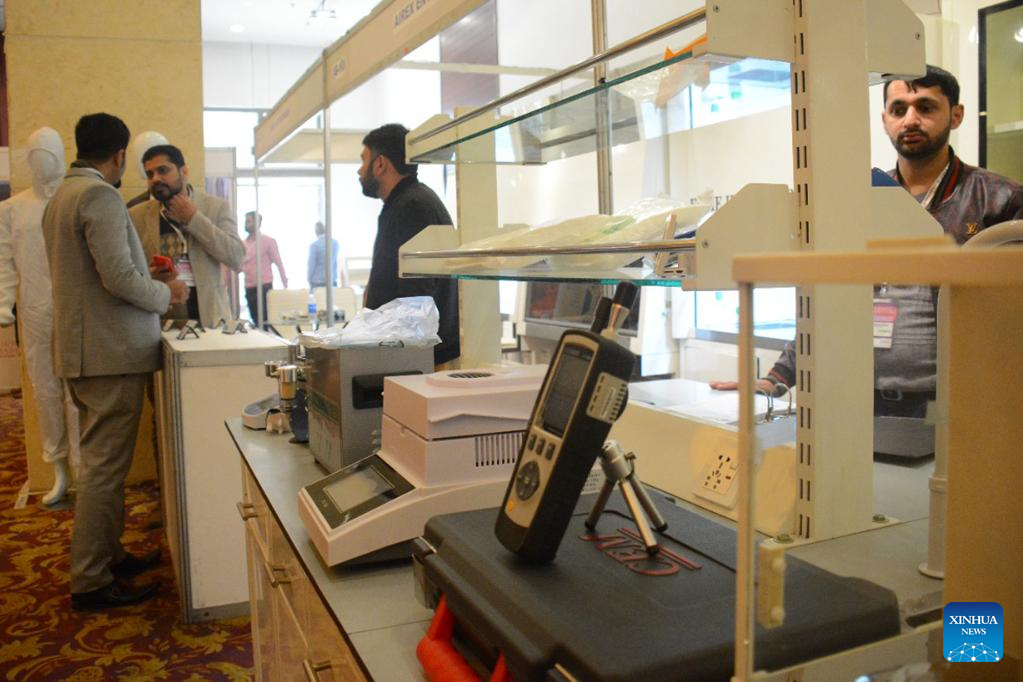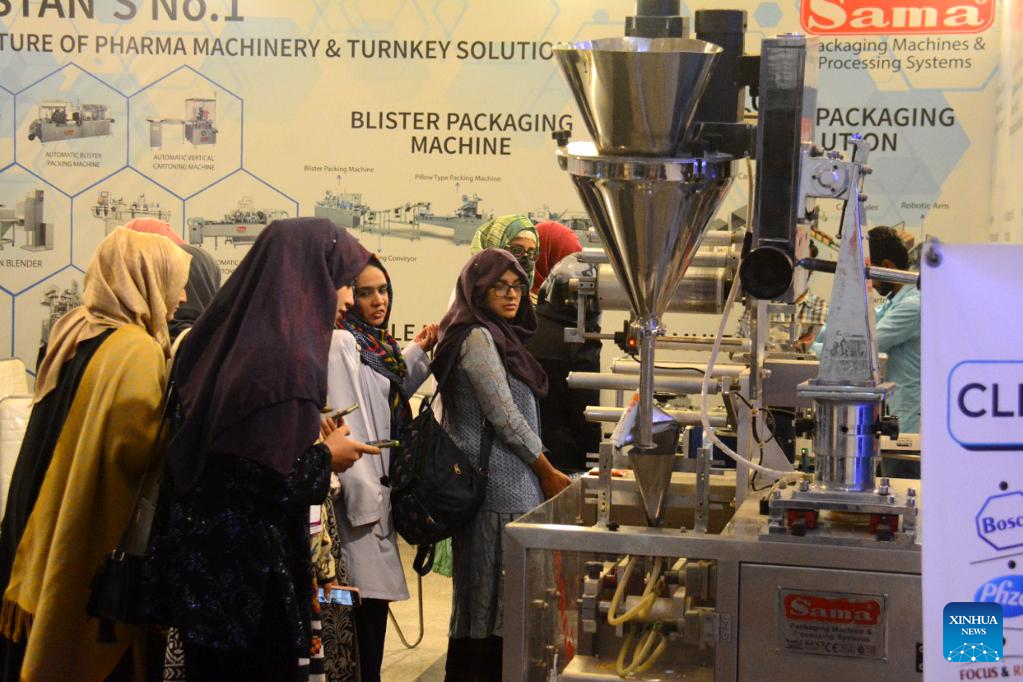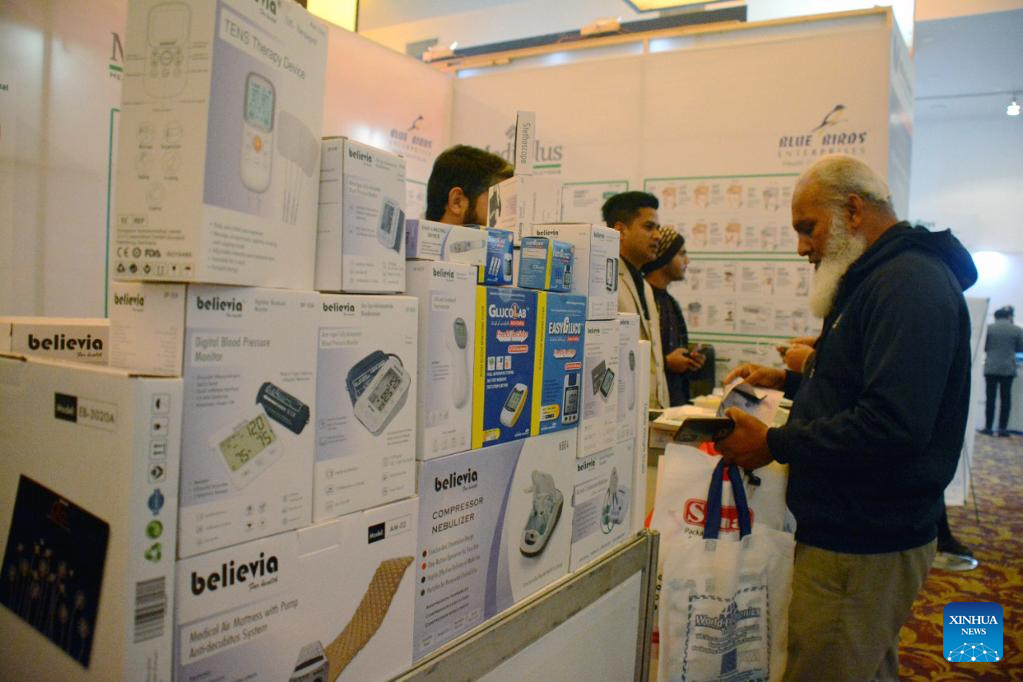
People visit a stall at Pak Pharma and Healthcare Expo in Islamabad, capital of Pakistan on Dec. 22, 2022. (Xinhua/Ahmad Kamal)
By Misbah Saba Malik
ISLAMABAD, Dec. 27 (Xinhua) -- Muhammad Salman, sales manager of Lahore-based United Chemicals had a busy day meeting new clients at the two-day Pak Pharma and Healthcare Expo recently held at the Pak-China Friendship Center here.
"This expo is important for us to meet new potential clients, and we are very happy to receive over 100 new clients on the first day," the Pakistani businessman mentioned in a conversation with Xinhua, while a big board in the background of his stall showing the companies and brands from where they import the products was dominated by Chinese companies' trademarks.
According to World Bank figures, Pakistan imported chemicals worth over 1.9 billion U.S. dollars from China in 2020, making it the largest market for Pakistani importers.
Salman's company, which is one of the major importers of the chemical raw material in the South Asian country, prefers China because "it is a very big market and we get a lot of options in one place which saves our time, money and effort," he said.
The customers kept on pouring in at Salman's stall and many of them told Xinhua that they visited the stall after hearing the positive word of mouth regarding Salman's company which supplies top quality products.
A few yards away from Salman's stall, Muhammad Iqbal, who is the managing director of Servex Group of Companies Pakistan, had his booth of medical furniture and equipment used in medical laboratories and pharmaceutical companies.
In a conversation with Xinhua, Iqbal said that dealers like him get machines partially manufactured in Pakistan and import partially from China as despite shipment charges the price is cheaper and the quality is better as compared to local markets.
"China has big industrial units from where they export products to every part of the world. By using modern technology, Chinese industrialists make a big quantity of products at cheaper prices due to which when we buy products from them we are also able to prepare cost-effective products," Iqbal added.
Citing the example of a stability chamber placed at his stall, he said that the hardware part was manufactured in Pakistan, but the most important parts, the main electric controller and the humidifier were imported from China.
"In 2020 I was planning to visit China, but couldn't go because of the COVID-19 pandemic," Iqbal said, adding that he is planning to visit China to achieve more deals and bring back more products after the disease control measures targeting inbound travelers in China lifted.
He hoped that Chinese companies will also invest in the special economic zones being formed in Pakistan under the framework of the China-Pakistan Economic Corridor (CPEC) and prepare the mechanical products in Pakistan.
"It will be a win-win cooperation for both. The investors can not only tap the large market, but also get the benefit of the cheap labor market of Pakistan, and export the products to other countries as roads have become better and connectivity has been enhanced due to CPEC," he added.
Talking to Xinhua, Zia Ur Rehman, manager of United Chemicals, expressed expectations of Pakistan-China economic and trade cooperation in the new year.
"I hope that the next year will be the year of economic prosperity as things will get back to normal after the pandemic and Pakistani businessmen will get a chance to visit China again and further expand our business-to-business cooperation," he added. ■

People visit a stall at Pak Pharma and Healthcare Expo in Islamabad, capital of Pakistan on Dec. 22, 2022. (Xinhua/Ahmad Kamal)

A man visits a stall at Pak Pharma and Healthcare Expo in Islamabad, capital of Pakistan on Dec. 22, 2022. (Xinhua/Ahmad Kamal)
